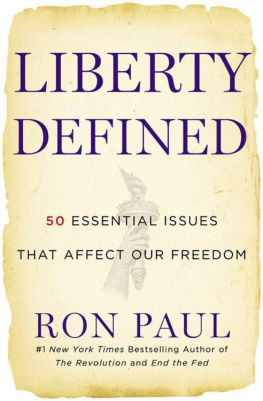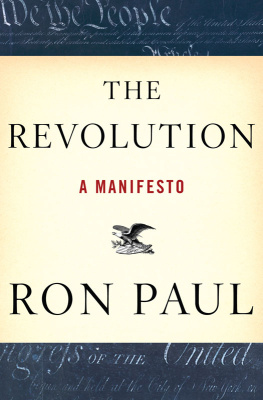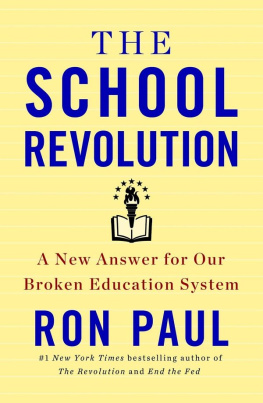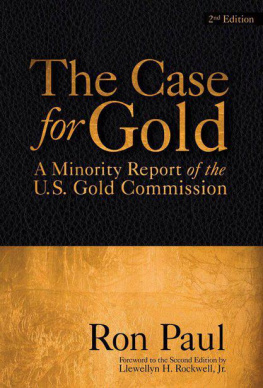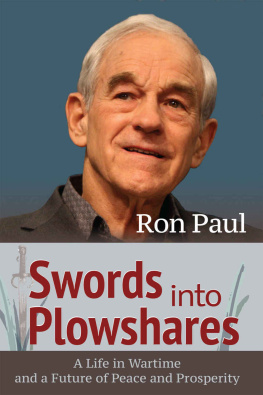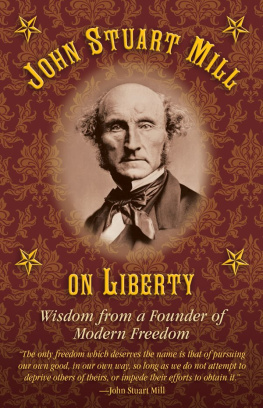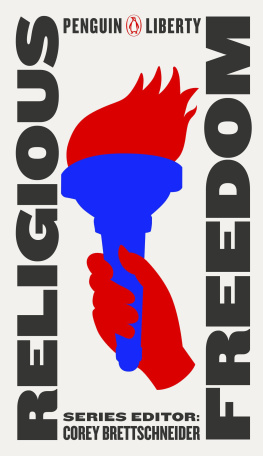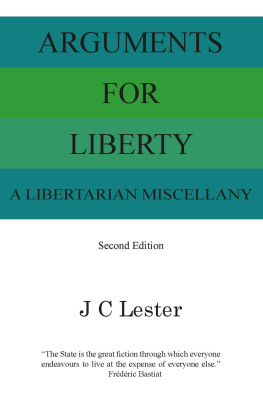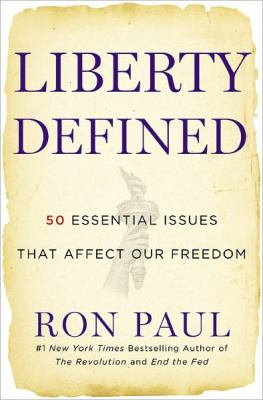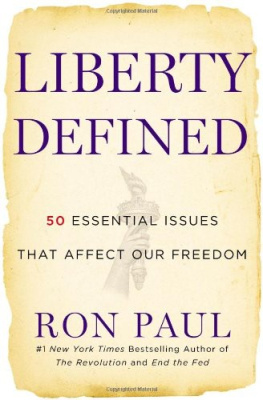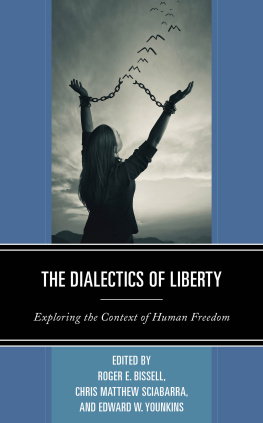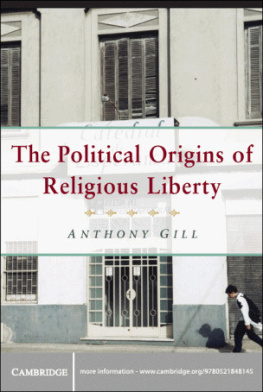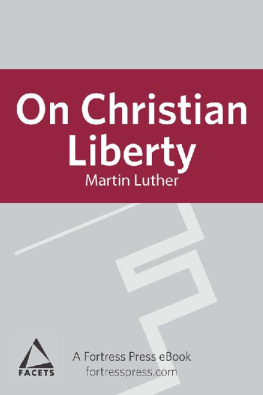LIBERTY DEFINED
50 Essential Issues That Affect Our FreedomRON PAUL

NEW YORK BOSTON
This book is dedicated to the great intellectuals of freedom who taught and inspired me and so many others:
Ludwig von Mises, F. A. Hayek, Leonard E. Read, Murray N. Rothbard, and Hans F. Sennholz.
A mericas history and political ethos are all about liberty. The Declaration of Independence declares that life, liberty, and the pursuit of happiness are unalienable rights, but I believe that both life and the pursuit of happiness also depend on liberty as a fundamental bedrock of our country. We use the word almost as a clich. But do we know what it means? Can we recognize it when we see it? More importantly, can we recognize the opposite of liberty when it is sold to us as a form of freedom?
Liberty means to exercise human rights in any manner a person chooses so long as it does not interfere with the exercise of the rights of others. This means, above all else, keeping government out of our lives. Only this path leads to the unleashing of human energies that build civilization, provide security, generate wealth, and protect the people from systematic rights violations. In this sense, only liberty can truly ward off tyranny, the great and eternal foe of mankind.
The definition of liberty I use is the same one that was accepted by Thomas Jefferson and his generation. It is the was devoted to freeing society from the shackles of the state. This is an agenda I embrace, and one that I believe all Americans should embrace.
To believe in liberty is not to believe in any particular social and economic outcome. It is to trust in the spontaneous order that emerges when the state does not intervene in human volition and human cooperation. It permits people to work out their problems for themselves, build lives for themselves, take risks and accept responsibility for the results, and make their own decisions.
Do our leaders in Washington believe in liberty? They sometimes say they do. I dont think they are telling the truth. The existence of the wealth-extracting leviathan state in Washington, DC, a cartoonishly massive machinery that no one can control and yet few ever seriously challenge, a monster that is a constant presence in every aspect of our lives, is proof enough that our leaders do not believe. Neither party is truly dedicated to the classical, fundamental ideals that gave rise to the American Revolution.
Of course, the costs of this leviathan are incalculably large. The twentieth century endured two world wars, a worldwide depression, and a forty-five-year Cold War with two superpowers facing off with tens of thousands of intercontinental missiles armed with nuclear warheads. And yet the threat of government today, all over the world, may well present a greater danger than anything that occurred in the twentieth century. We are policed everywhere we go: work, shopping, home, and church. Nothing is private anymore: not property, not family, not even our houses of worship. We are encouraged to spy on each other and to stand passively as government agents scan us, harass us, and put us in our place day after day. If you object, you are put on a hit list. If you fight to reveal the truth, as WikiLeaks or other websites have done, you are targeted and can be crushed. Sometimes it seems as if we are living in a dystopian novel like 1984 or Brave New World, complete with ever less economic freedom. Some will say that this is hyperbole; others will understand exactly what Im talking about.
What is at stake is the American dream itself, which in turn is wrapped up with our standard of living. Too often, we underestimate what the phrase standard of living really means. In my mind, it deals directly with all issues that affect our material well-being, and therefore affects our outlook on life itself: whether we are hopeful or despairing, whether we expect progression or regression, whether we think our children will be better off or worse off than we are. All of these considerations go to the heart of the idea of happiness. The phrase standard of living comprises nearly all we expect out of life on this earth. It is, simply, how we are able to define our lives.
Our standards of living are made possible by the blessed institution of liberty. When liberty is under attack, everything we hold dear is under attack. Governments, by their very nature, notoriously compete with liberty, even when the stated purpose for establishing a particular government is to protect liberty.
Take the United States, for example. Our country was established with the greatest ideals and respect for individual freedom ever known. Yet look at where we are today: runaway spending and uncontrollable debt; a monstrous bureaucracy regulating our every move; total disregard for private property, free markets, sound money, and personal privacy; and a foreign policy of military expansionism. The restraints placed on our government in the Constitution by the Founders did not work. Powerful special interests rule, and there seems to be no way to fight against them. While the middle class is being destroyed, the poor suffer, the justly rich are being looted, and the unjustly rich are getting richer. The wealth of the country has fallen into the hands of a few at the expense of the many. Some say this is because of a lack of regulations on Wall Street, but that is not right. The root of this issue reaches far deeper than that.
The threat to liberty is not limited to the United States. Dollar hegemony has globalized the crisis. Nothing like this has ever happened before. All economies are interrelated and dependent on the dollars maintaining its value, while at the same time the endless expansion of the dollar money supply is expected to bail out everyone.
This dollar globalization is made more dangerous by nearly all governments acting irresponsibly by expanding their powers and living beyond their means. Worldwide debt is a problem that will continue to grow if we continue on this path. Yet all governments, and especially ours, do not hesitate to further expand their powers at the expense of liberty in a futile effort to force an outcome of their design on us. They simply expand and plummet further into debt.
Understanding how governments always compete with liberty and destroy progress, creativity, and prosperity is crucial to our effort to reverse the course on which we find ourselves. The contest between abusive government power and individual freedom is an age-old problem. The concept of liberty, recognized as a natural right, has required thousands of years to be understood by the masses in reaction to the tyranny imposed by those whose only desire is to rule over others and live off their enslavement.
This conflict was understood by the defenders of the Roman Republic, the Israelites of the Old Testament, the rebellious barons of 1215 who demanded the right of habeas corpus, and certainly by the Founders of this country, who imagined the possibility of a society without kings and despots and thereby established a framework that has inspired liberation movements ever since. It is understood by growing numbers of Americans who are crying out for answers and demanding an end to Washingtons hegemony over the country and the world.
And yet even among the friends of liberty, many people are deceived into believing that government can make them safe from all harm, provide fairly distributed economic security, and improve individual moral behavior. If the government is granted a monopoly on the use of force to achieve these goals, history shows that that power is always abused. Every single time.

